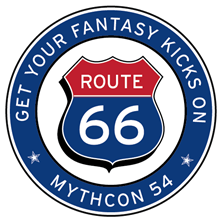Abstract
By understanding how Merlin and Brisen manifest the influence of archaic ideas concerning time and the esoteric teachings of the Zohar in Williams’s Taliessin cycle, we are able to account for their roles in the story, and to understand more clearly Williams’s eschatological vision of unity to which all events in the cycle are either directed or opposed. This vision incorporates both Platonic (or Neoplatonic) and Kabbalistic elements in harmony with one another, adapted through the filter of Williams’s own esoteric ideas and Christian beliefs.
Creative Commons License

This work is licensed under a Creative Commons Attribution-NonCommercial-No Derivative Works 4.0 International License.


